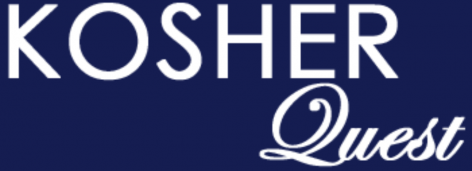“Eating out” is easy in a city blessed with kosher restaurants under reliable supervision. But where there are no kosher restaurants, many people who otherwise are very careful about kashrus observance at home succumb to the temptation of eating in a non-kosher restaurant. They rely on the common myth that many foods do not require supervision and can be eaten in any restaurant.
We have already discussed in some detail that neither “health foods” nor “natural foods” are intrinsically kosher. The same is true with health-food restaurants. Even in ordinary restaurants, one often sees Orthodox people enjoying a nice dinner with apparent ease. However, if we examine a menu from either type of restaurant, we will find very little that can truly be ordered without risk of eating treif. A typical breakfast may consist of coffee, fried or hardboiled eggs, or lox and bagels with cream cheese. Some of the problems with these foods could be as follows:
1) unflavored coffee none, if served in a kosher cup, without cream.
2) fried eggs non-kosher frying pan; non-kosher oil or mar- garine; non-kosher eggs.
3) hardboiled eggs non-kosher eggs; non-kosher boiling pot (shell is permeable).
4) lox cured with non-kosher fish.
5) bagels shortening (non-kosher); di-glycerides; non-kosher release agents; non-kosher egg substitutes, non-kosher equipment.
6) cream cheese non-kosher rennet and culture.
If one chose dinner in a non-kosher restaurant and ordered fish, cole slaw, salad, orange juice, mustard or ketchup, with a side dish of pure cooked beans, the following problems could be present:
1) tuna fish non-kosher oil, unsupervised packing.
2) cooked fish non-kosher oil for cooking; non-kosher sea- sonings; frying pan used for non-kosher food; inability to determine if fish is truly from kosher species.
3) orange juice none.
4) cole slaw bugs (prevalent in cabbage); dressings with oils, emulsifiers, oil, oxystearin, etc.
5) salad radishes, onions cut with treif cutlery; non-kosher dressing.
6) mustard oleoresins; turmeric (containing emulsifiers and glycerides).
7) ketchup processing equipment; same as mustard.
8) beans processed on ham and pork equipment cooked in non-kosher utensils.
In all of these cases, we must remember that any kosher food that is boiled, baked, grilled, fried or broiled in a treif utensil previously used for non-kosher products or for meat and dairy products indiscriminately will itself be non- kosher, and should not be eaten. Furthermore, any kosher food, when served hot on a non-kosher dish is rendered non-kosher.
What is permissible in a non-kosher restaurant is: coffee or tea prepared in a special, separate utensil and served in styrofoam cups; cold fruit or salad, which were cut with a permisible knife and served on cold, clean non-kosher utensils. Unfortunately, even this can prove to be a disappointing experience, as many waiters and chefs add sauces, dressings or cottage cheese to salads, even when not requested to do so. The Kosher patron should always be certain to tell the waiter that the salad should be served without any dressings or chef’s’ surprises (e.g., salami cubes, bacon strips, etc.).
Another matter of concern to the Kosher patron who considers eating even something innocuous (such as a soft drink) at, say, Mc Donald’s is the serious problem of “ma’aris ayin”, the “appearance to the eye.” People who don’t know better may reach the wrong conclusion about the status of eating anything in such an establishment, or about your personal practice.
On the other hand, airline meals that are served in their own container, may avoid the problem of “ma’aris ayin.” This is why people eat these types of meals on airlines, Disneyland (as of this publication), hotels, etc. However, even in these cases, care must be taken that the meal will remain double-wrapped when it is heated and served and that only plastic or kosher cutlery be used.
In conclusion, it is evident that kashrus observance deserves the same care and caution wherever one eats, whether in restaurants or at home.

